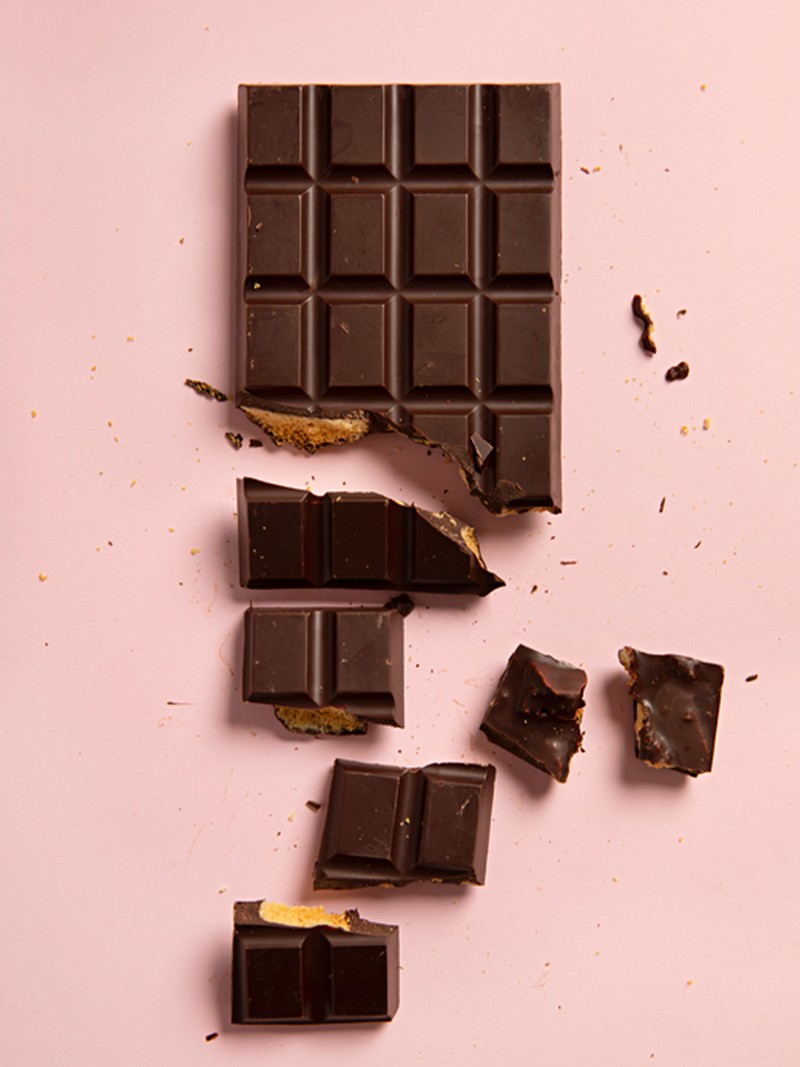Food Cravings & How To Control Them
Hormone Imbalances
“Hormone imbalances, in particular our hunger hormones, may trigger a person’s cravings. Ghrelin, known as the 'hunger hormone' increases appetite, while leptin signals to the brain that you are full. Disruptions in these hormones can lead to persistent cravings and may explain why some people experience more cravings than others. Changes in oestrogen and progesterone levels, particularly before menstruation or during per-menopause, may also intensify cravings, especially for carbohydrate-rich foods. To help balance these hormones, it’s essential to get good sleep, eat a balanced diet, exercise, maintain a healthy weight, consume protein at every meal, and manage stress.”
Pregnancy
Pregnancy is a time when cravings are particularly common, often for foods such as chocolate, fruit, sweets, ice-cream and carbohydrates. Hormonal changes that come with pregnancy may influence smell and taste receptors, causing more intense cravings (and aversions). It might also be that there are nutrient deficiencies that need compensating for.
“Most cravings are pretty normal in pregnancy, but focusing on a balanced diet is crucial for both the baby’s development and the mother’s health,” adds Rose. Choose foods that make you feel good, but ensure your diet includes plenty of protein, good fats from fish (or an omega-3 supplement such as Bare Biology), wholegrains, and lots of fruit and vegetables.”
Lack Of Sleep
“A lack of sleep or poor-quality sleep can disrupt the hormones that regulate hunger and fullness, leading to overeating and weight gain. When tired, you’re more likely to reach for ‘quick fix’ energy foods that are high in fats and sugar. So, aim to get a good seven to eight hours sleep per night with a focus on pre-midnight hours for optimal rest. To support good sleep hygiene, try to stick to a regular bedtime, avoid tech in the bedroom, stop drinking alcohol three hours before bed, get out in the sunlight in the morning, avoid caffeine after 3pm, and try to exercise regularly,” says Rose. For a soothing bedtime routine, try mixing Ancient & Brave Nightcap powder with warm water or using a few drops of Dreem Distillery CBD Oil.
Poor Gut Health
“The gut microbiome plays an important role in regulating hunger. Different bacteria in the gut influence the production of ghrelin and leptin, affecting how full or hungry you feel. A diet low in fibre and high in processed foods and alcohol will affect the balance of gut bacteria,” explains Rose. To support gut health, consume a wide variety of fruits, vegetables, wholegrains, nuts, seeds and fermented foods. Probiotics can help – Microbz offers an effective range of liquid formulations to sustain or revive the gut microbiome.”
Blood-Sugar Imbalance
“Cravings are often tied to fluctuations in our blood sugar levels, which can be caused by stress, lack of sleep and consuming high-sugar, refined-carb foods. When blood sugar levels drop quickly after eating these foods, our body seeks a quick energy boost, creating a cycle,” says Rose. To balance blood sugar, consume three proper meals per day that include protein (chicken, fish, eggs, Greek yoghurt, jumbo oats, chickpeas, quinoa); choose complex carbs (wholegrains) over refined carbs (white rice, pasta, bread); and avoid sugary foods. Apple cider vinegar diluted in warm water before a meal can help balance blood sugar – Willy’s offers a raw, unpasteurised organic range of products. Adding cinnamon to foods or taking supplements like Cytoplan Blood Glucose Support or Nutri Advanced Gluco-Chrome can also help.
Poor Hydration
Thirst can often be mistaken by the brain for hunger, so aim to consume 1.5-2 litres of filtered water daily. This can include herbal teas like those from Lab Tonica, JP Originals or antioxidant-rich mushroom tea from Dirtea. OHMG offers an alternative to fizzy drinks. It is simply carbonated water and magnesium that helps support brain health, bones and heart function. “Staying hydrated helps to curb cravings, improve digestion and keep the brain alert,” adds Rose.
Processed Foods
“Foods high in saturated fats and sugar are highly addictive and this can lead to an overwhelming urge to consume them. For simple wholefood solutions when time is limited, opt for things like tray bakes with fish or chicken including plenty of vegetables. Another healthy shortcut is the ready-meal and snack offering from Foodhak: rooted in Ayurveda, its meals are convenient and free of things like refined sugar, dairy, preservatives and palm oil. Also, try practising mindful eating, paying attention to your eating habits, and eating slowly to enhance leptin response and manage cravings.”
Stress
“Stress can disrupt cortisol levels, which are directly linked to hunger and cravings. Try the ‘box breathing technique’: breathe in for a count of four, hold your breath for a count of four and exhale for a count of four. Repeat three to four rounds. This simple exercise can significantly help to reduce stress and support the nervous system,” recommends Rose. Supplements like BodyBio’s Calm are full of stress-relieving ingredients, and can also promote everyday calm and focus.
Rose Ferguson is resident nutritionist at Surrenne, the new longevity and wellbeing club in Knightsbridge.
DISCLAIMER: Features published by SheerLuxe are not intended to treat, diagnose, cure or prevent any disease. Always seek the advice of your GP or another qualified healthcare provider for any questions you have regarding a medical condition, and before undertaking any diet, exercise or other health-related programme.
DISCLAIMER: We endeavour to always credit the correct original source of every image we use. If you think a credit may be incorrect, please contact us at info@sheerluxe.com.


